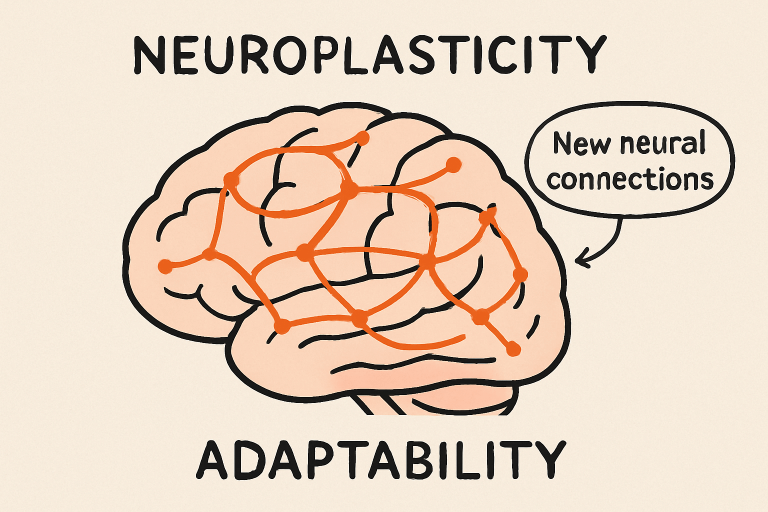What Is Functional Neurology? A New Approach to Healing the Brain

Functional neurology is a specialized field that focuses on the assessment and rehabilitation of the nervous system using customized, noninvasive methods.
Table of Contents
Understanding Functional Neurology
Unlike conventional neurology, which typically treats neurological disorders with medication or surgery, this approach seeks to restore brain function by tapping into the brain’s natural adaptability.
Those seeking a modern and integrative perspective on neurological health may explore options like integrative chiropractic, which incorporates these functional neurology principles to address root causes and promote overall wellness.
Central to functional-neurology is the belief that brain function isn’t static. Instead, it can often be enhanced with targeted stimulation and training, paving the way for recovery and improved performance even after injury or illness.
The Principles of Neuroplasticity
The brain’s remarkable ability to reorganize itself—neuroplasticity—forms the foundation of functional neurology. Neuroplasticity refers to the brain’s responsiveness to learning, experiences, and rehabilitation, allowing it to create new neural networks or rewire existing ones, especially after damage.
Functional neurologists design therapeutic protocols that leverage this adaptability. By strategically stimulating specific sensory and motor pathways, these interventions can strengthen underperforming brain regions, facilitating skill recovery and mitigating long-term deficits.
Conditions Addressed by Functional Neurology
Functional neurology’s tailored interventions have broad applications, with therapists often seeing success in the following areas:
- Concussions and Traumatic Brain Injuries (TBI): Individualized exercises help restore focus, memory, balance, and coordination after head injury.
- Chronic Pain and Migraines: Methods that retrain how the brain interprets pain signals can reduce symptom severity and improve comfort.
- Neurodegenerative Diseases: While not a cure, interventions can help manage symptoms and improve daily function for those with Parkinson’s disease, multiple sclerosis, and other progressive disorders.
- Balance and Dizziness Disorders: Vestibular and proprioceptive training are frequently used to aid patients suffering from vertigo, dizziness, or clumsiness.
- ADHD and Learning Disabilities: Functional-neurology can help children and adults overcome attention and learning challenges by improving sensory integration and cognitive processing.
Therapeutic Techniques in Functional Neurology
Functional-neurology incorporates a broad spectrum of non-invasive therapies. Each protocol is tailored to the individual, based on careful neurological assessment. Common modalities include:
- Vestibular Rehabilitation: Balancing exercises that target the inner ear and brain connections are essential for those experiencing dizziness or imbalance.
- Oculomotor Training: Targeted eye movement exercises that improve visual focus, reading, and coordination, especially following head trauma.
- Proprioceptive Training: Activities that enhance awareness of body position and movement—crucial for motor control and injury prevention.
- Neurofeedback: Real-time monitoring that allows patients to observe and learn to regulate their own brainwave activity, often used for attention and anxiety challenges.
Treatment plans may include other interventions, depending on specific needs, but they always aim to create lasting improvements through repetition and graduated challenges.
Evidence Supporting Functional Neurology
The body of research exploring functional-neurology is continually expanding. Systematic reviews and critical analyses emphasize the need for more large-scale, controlled trials to fully verify the efficacy of these interventions.
According to a review in Chiropractic & Manual Therapies, while current evidence is largely preliminary, patient reports and initial clinical findings are promising, especially for individualized patient care.
As with any innovative medical field, ongoing research and collaboration are helping clarify best practices, treatment boundaries, and conditions most likely to benefit from functional neurology.
Integrating Functional Neurology into Healthcare
Functional neurology marks an evolution in patient-centered neurological care, offering a complementary pathway alongside traditional treatments. Emphasizing individualized assessments and leveraging the brain’s ability to adapt, this approach can play a transformative role, especially when standard interventions fail to address a patient’s symptoms or goals fully.
Patients considering functional-neurology should seek care from qualified, experienced professionals. Multidisciplinary teams, including medical doctors, chiropractors, physical therapists, and other specialists, can enhance outcomes and ensure comprehensive evaluation and treatment planning.
See also: The Role of Diversity in the Workplace: Driving Innovation and Building Collaboration
Conclusion
Functional neurology’s innovative, patient-focused therapies offer new hope for individuals seeking recovery, improved function, and a better quality of life after neurological injury or in the face of chronic conditions.
By embracing the science of neuroplasticity and tailoring interventions to each patient’s unique needs, functional-neurology continues to redefine how we approach healing the brain and nervous system, paving the way for a healthier, more resilient future.



